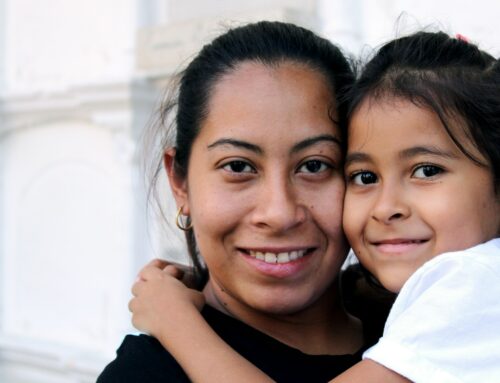For some people, moving to another country can be something like a dream. A fantasy of adventure, new experiences, a better way of life. But without the proper preparation, moving abroad can also turn into a logistical nightmare. In some cases, the legal paperwork and bureaucratic procedure can be formidable. But even if the immigration process is straightforward, that’s only the beginning. If you’re thinking about moving to Canada, you need to be realistic about the relocation process and really understand what you’re getting into. You might even want to read a few books on moving to Canada.
Potential obstacles and areas of interest
Getting your visa in order and establishing legal residency, whether temporary or permanent, will be the first step in relocating to Canada. But don’t kid yourself; the process is far from over. Here a few more aspects of life that you’ll need to sort out. Maybe things work differently in your home country. But are they very different, or just a little bit different, and in what way?
- HOUSING: Of course you need to find a place to live. That means understanding the pros and cons of buying versus renting, getting to know the different neighborhoods. Also finding a good real estate agent, understanding property rights (or renters rights), and then setting up your utilities.
- DRIVING: If you want to drive in Canada, you need to get a Canadian driver’s license. Then you have to buy a car. Or maybe you want to lease one. A new car or a used car? Where to buy one, how to avoid getting taken advantage of, and then you need to shop for auto insurance. The questions go on and on.
- HEALTHCARE: Maybe you’ve heard that Canada has a great healthcare system. But who’s eligible? How do you enroll? What does it cover? And what doesn’t it cover?
- WORK: In most cases, living in Canada also means working in Canada. You’ll need to figure out what you need to do to in order to work legally. And how to find a job. And then there’s the subject of income taxes.
- SCHOOL: Are you planning to study in Canada, or do you have kids who are of school age? You’ll need to familiarize yourself with the education system and understand your options, for example, public schools vs. private schools vs. international schools. College or university? What can you study, how much will it cost?
- SHOPPING: If you’re just arriving in Canada, you may have very little with you besides a few suitcases. Whether you’re looking for the best quality or the lowest prices, you’ll quickly need to figure out the best places to buy things like furniture, clothing, hardware supplies, gifts, groceries, and on and on.
- CULTURE: If you’re coming to Canada from a place like India or Pakistan, you may be in for a taste of culture shock when you come to Canada. But even if you’re moving from a country like the U.S. or the U.K., you’ll be surprised to discover how many things are done differently in Canada, even if only slightly differently. Canadians have a different style of speaking and communicating, they have different customs around eating and drinking, different attitudes about race and gender, different attitudes on social and political issues, and so on.
And that’s just the tip of the iceberg. So if you’re moving to Canada — even if it’s a dream come true —brace yourself for the fact that your dream may involve more than just blues skies, green pastures and towering maple trees. But it doesn’t have to be overwhelming or catastrophic. Start by informing yourself and making use of the resources that are out there. To that end, we’ve compiled this handy list of some of the best books on moving to Canada, including a few affiliate links to where you can purchase them on Amazon or elsewhere online.
The Best Books on Moving to Canada
How to Move to Canada: A Discontented American’s Guide to Canadian Relocation, by Andre du Broc
A popular and entertaining read, this is basically the handbook for moving to Canada for the person who declares, “If so-n-so gets elected, that’s it! I’m moving to Canada!” Without belaboring the reasons why an American might decide to move up north, the book gets right to the heart of the matter. And although it may be shelved in the humor section of your local bookstore, it is in fact loaded with useful information on how to navigate the immigration process and get settled in the Great White North. The book addresses a wide variety of salient social and cultural issues to consider if moving to Canada, but at the end of the day, the emphasis is on humor. Andre du Broc has a good time making fun of both Americans and Canucks, so you are almost certain to enjoy it. But the relocation advice is far from thorough and exhaustive.
The ARIANNE Online Relocation Guide
If you are serious about moving to Canada and landing on your feet, this is without a doubt the most thorough option available. Written by a team of native Canadians and expats who have been in the relocation business since 1996, this series of city-specific guides covers everything from immigration and visa types, to schooling, housing, driving, shopping, healthcare, culture and more. ARIANNE has been fielding these questions from real immigrants for decades, and these guides address those questions before you’ve even had a chance to ask them. Also, the guides are online, so they are updated regularly, always keeping up with the most current immigration laws and public policies. Furthermore, unlike the other books on this list, ARIANNE’s guides are intended for families and individuals moving from anywhere in the world, not just from America.
Moving to Canada: A detailed immigration guide from two Americans who’ve done it, by Cori Carl and Casey Dali
As the title states, this is a book written for Americans by Americans, but Americans who really did it. So the information is practical, relevant and accurate. The authors have researched Canada’s immigration options thoroughly, and spell them out so that other Americans can make educated decisions about whether and how to immigrate legally to Canada. The books also gets into other aspects of living in Canada, like the healthcare system and tax laws. But they omit things like education, driving, employment that others cover in exhaustive detail.
Moving to Canada: A complete guide to immigrating to Canada without an attorney, by Cori Carl
One of the same authors from the title above, this newer volume features fully updated immigration policy information from 2018. Written with legal precision, but in a clear format that the layman can understand, the book provides clear, detailed explanations of the different immigration programs and step-by-step instructions on how to pursue those various programs, all the way up to becoming a Canadian citizen. If you’re looking for a single book to get you through the legal hoops of Canadian immigration, this is probably it. What’s missing, however, are all the social and cultural details we listed above, the barrage of questions that inevitably arise once you’ve gotten into the country and are preparing to settle down.
How to Move to Canada: A Primer for Americans, by Terese Loeb Kreutzer
Another comprehensive handbook for Americans heading to the land of moose and maples, this book offers most of the same info found in the previous books, all presented clearly and accessibly. However, dated 2006, the information in this title is bound to be a little out of date. Canada has made a number of reforms to its immigration laws in just the last couple years.
Photo Credit: Unsplash







Leave A Comment